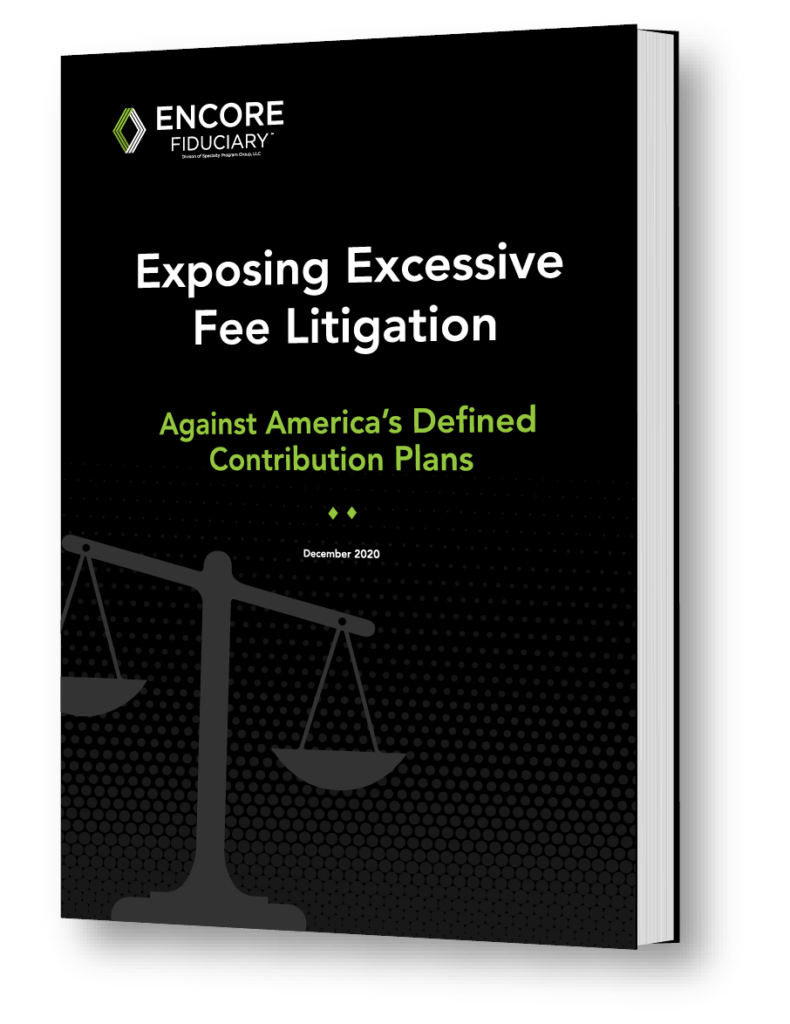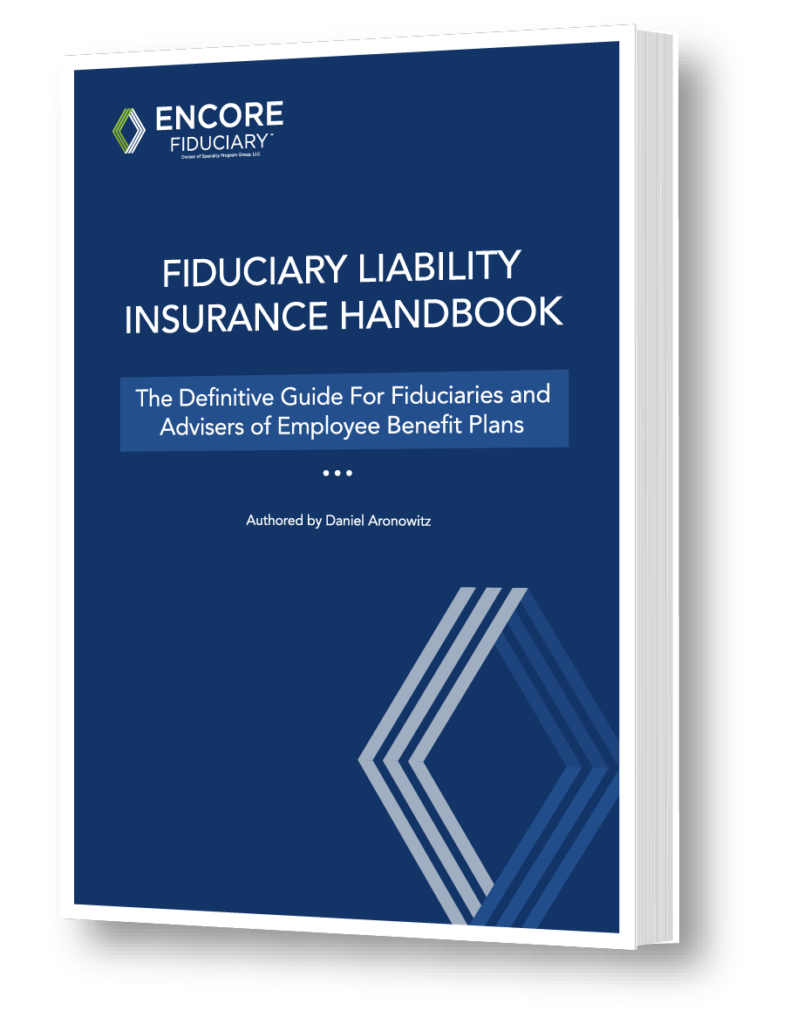Euclid’s whitepaper highlights the problem of excessive fee lawsuits and presents a sensible framework to restore fairness to the fiduciary standard of care for defined contribution plans.
Euclid Fiduciary Managers, LLC (“Euclid Fiduciary”) released a new whitepaper authored by the underwriting company’s Managing Principal Daniel Aronowitz exploring the problems with recent surge in excessive fee litigation. Plaintiff law firms have flooded the federal courts with cookie-cutter ERISA class action litigation against defined contribution plans and the employees who agree to serve as fiduciaries for their company’s retirement plans. The copy-cat lawsuits — now nearly 200 in number with over 90 filed in 2020 alone — attack retirement plan investment options that are commonplace and longstanding. These lawsuits allege that defined contribution plan administrative and investment fees are too high, and that any investment performance that lags any plaintiff-asserted benchmark — a moving target — is actionable negligence that should generate huge indemnity payments and high attorney fees to the firms bringing these lawsuits.
According to Euclid’s whitepaper, excessive fee litigation involves allegations that a plan is paying too much to its investment manager and recordkeeper. Specifically, the lawsuits allege that some of the plans’ investment options charged excessive fees or performed inadequately, and that the costs to administer the plan are too high. As Aronowitz explains, “Plaintiff firms are targeting defined contribution plans with a new purported standard of care that has not been officially endorsed by regulators. The lawsuits find a lower-cost mutual fund and assert that all investment fees higher than that purported benchmark constitute fiduciary negligence. Alternatively, the plaintiffs allege that a lower recordkeeper fee is available in the market, and that any higher amount that the plan charges participants is also part of a damages model from which the plaintiffs lawyers take a one-third cut. The bar to file a lawsuit with huge purported damage models is too low, and subjects all plan sponsors to the harassment of unfair and expensive litigation. The Department of Labor must step in to set a fair and uniform standard, and, in the meantime, federal courts must apply a more rigorous standard to weed out the frivolous litigation.”
When an excessive fee lawsuit survives a motion to dismiss, plaintiff firms are able to drive huge settlements – often between $10M and $30M – because the cost of litigation is high and the damage models of alleged investment under-performance or excessive plan fees being allowed by federal courts are huge. The problem for U.S. plan sponsors is that it is now difficult to secure adequate fiduciary liability insurance given the surge in excessive fee lawsuits, with over ninety class actions filed just this year alone. Fiduciary liability insurers have responded by limiting their exposure to this capricious liability by reducing limits, raising premiums, dramatically raising policy retentions, and sometimes capping — or sublimiting — the amount of excessive fee or class action exposure. While most plans focus on premium increase, the key change in the fiduciary market is the increased level of policyholder retentions.
The Whitepaper suggests four systemic reforms needed to restore a fair and uniform fiduciary standard of care:
- Reform # 1 – The Need for a Uniform and Rational Standard of Care from Federal Regulators.
- Reform #2 – Federal courts must apply a uniform, rigorous standard in ruling on a motion to dismiss in excessive fee cases.
- Reform #3 – Federal courts must apply a damages cap and limit attorney fees to reduce the outsized damages.
- Reform #4 – Recordkeepers and investment providers to America’s DC plans must take responsibility and bear the burden of allegations of excessive fees.
Finally, the Whitepaper suggests that every defined contribution plan is now at risk and must change how it is doing business. If you want to offer a retirement plan, you must engage in risk management to reduce plan recordkeeping and investment fees and offers advice on how to do so.
To learn more, download the Whitepaper “Exposing Excessive Fee Litigation Against America’s Defined Contribution Plans or visit our website at www.euclidspecialty.com.


